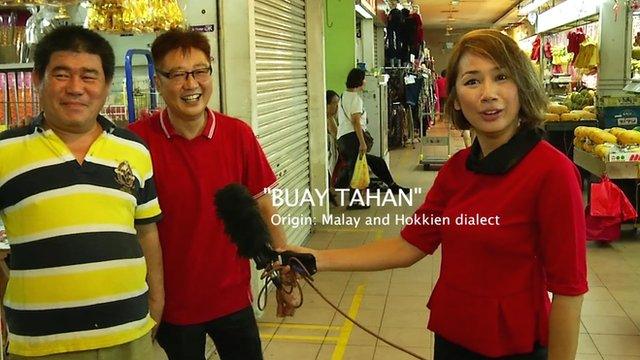'Chinese helicopter': Singlish OED entry baffles Singaporeans
- Published
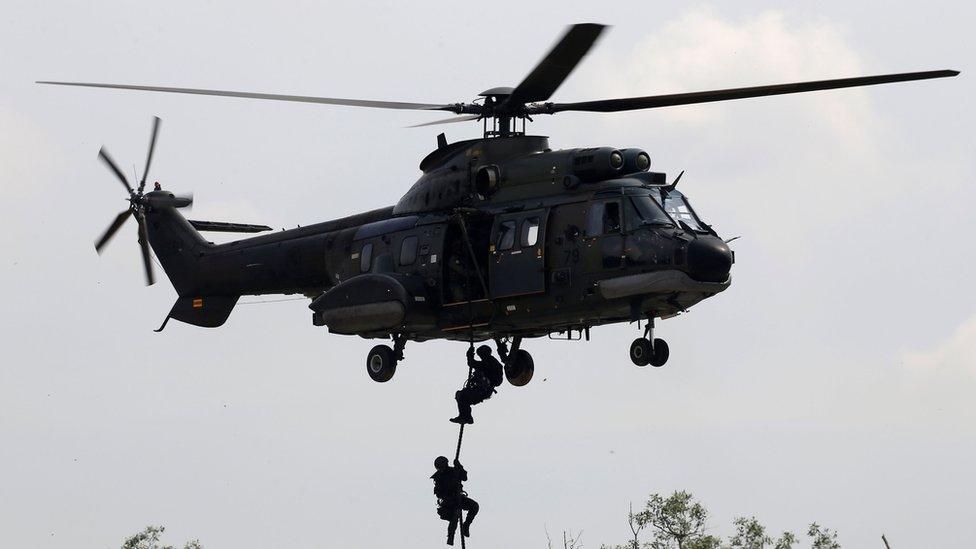
No, not this helicopter - so what does a 'Chinese helicopter' actually mean to Singaporeans?
As a native speaker of Singlish, I was proud to hear 19 Singaporean terms have made it to the Oxford English Dictionary.
"Ang moh" (local term for a Caucasian), chilli crab (our national dish) and "sotong" (another local term referring to a squid, but also used to describe ignorance) were just a handful of the words chosen for this year's update.
But what the heck is a "Chinese helicopter"?
"A Singaporean whose schooling was conducted in Mandarin Chinese and who has limited knowledge of English," the OED's official definition, external reads.
What talking you?
But like me, many of my fellow countrymen have been baffled by the appearance of the word.
"This is the first time I've come across the term," said Joseph Lim, 29, on Facebook.
"If there was no definition provided, I would have thought it was a sexual term."
Other Singaporeans, like Twitter user Chew Yiheng agreed. "Is that word even Singlish? I feel suaku, external", he said, referring to the local term for a country bumpkin, someone not well-informed.

OED definition of Singlish
An informal variety of English spoken in Singapore, incorporating elements of Chinese and Malay.
Do you speak Singlish? Decode these five phrases

Dr Danica Salazar, a consultant editor with the Oxford English Dictionary said the inclusion of these new words shows that "people do not need to speak English like Americans or the British in order for their English to be correct".
"These words have become part of the English language and they show something about the culture of Hong Kong and Singapore," she told BBC News.
"English is such a global language and this should be celebrated."
But Belmont Lay, the founding editor at local news portal Mothership, said the Oxford Dictionary was "having a go at Singaporeans".
"Chinese Helicopter reflects Singapore's Anglophone bias. I think it's great that the term was included but....why are they legitimising our creole English?"
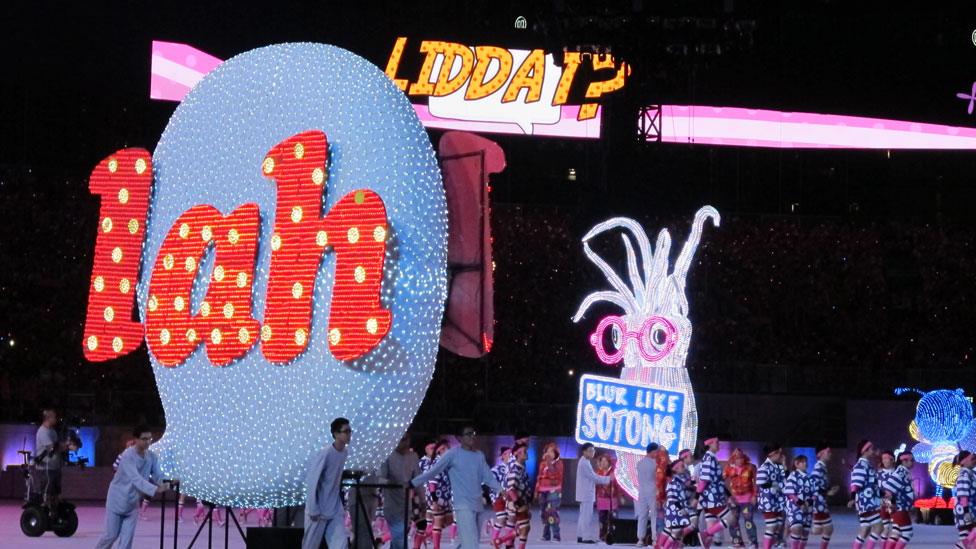
Don't play play, Singlish is spreading around the world
The inclusion of "Chinese helicopter" was also being discussed on local radio, external on Friday.
Teacher David Tan said he knew where the term came from: it's actually an in-joke from Singapore's military service tradition.
"We are not talking about importing Chinese-type of tomahawk helicopter here," he said in a comment in response to a post on our BBC News Facebook, external page.
"The term 'Chinese Helicopter' was coined due to a mispronunciation of the word 'educated'," he explained.
"During the early days, Singaporean men who were educated in Chinese schools had difficulty understanding English instructions in the army. Hence when a man would say 'educated', [it sounded like "helicated"] and became helicopter."
Wah, you so 'powderful'
There are other terms in the Singlish vocabulary which carry knowing mispronunciations, used to mock others.
Take for example, the usage of the word "powerful".
A Singaporean would swap it for the word "powderful" in a verbal battle.
When someone uses bad English, a normal speaker would reply sarcastically: "Wow, your English is so powerful".
But a true Singlish speaker would retaliate: "Wah, your England very powderful ah?"
So there you have it, win already lah!
- Published12 May 2016
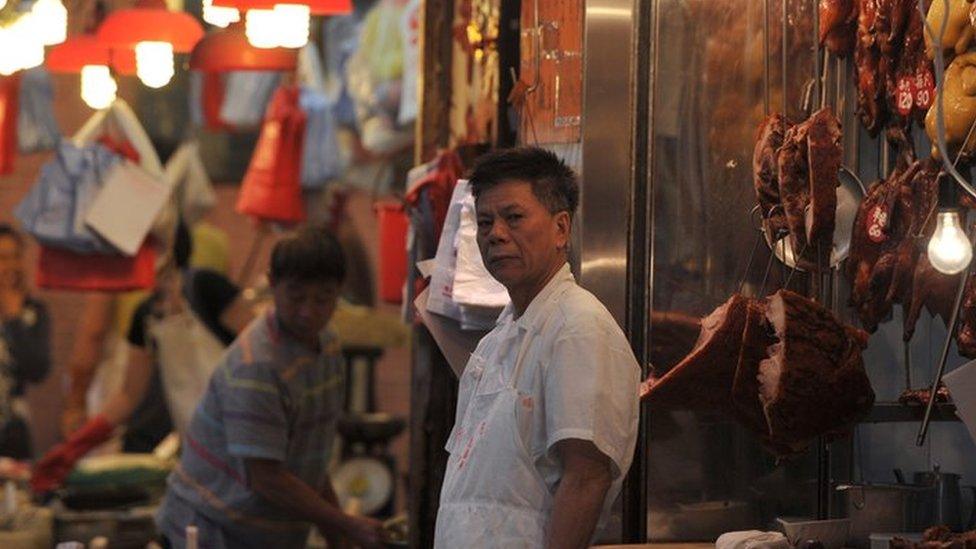
- Published6 August 2015
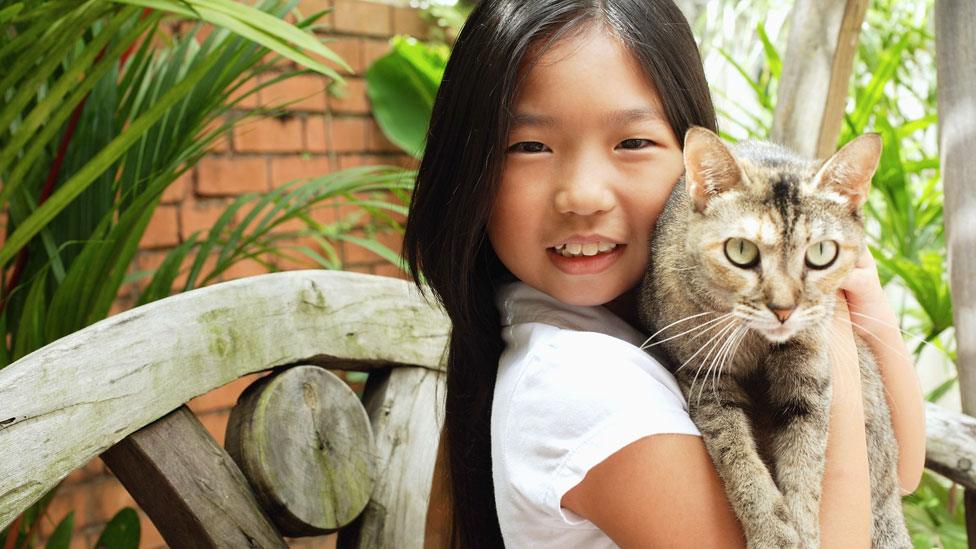
- Published7 August 2015
